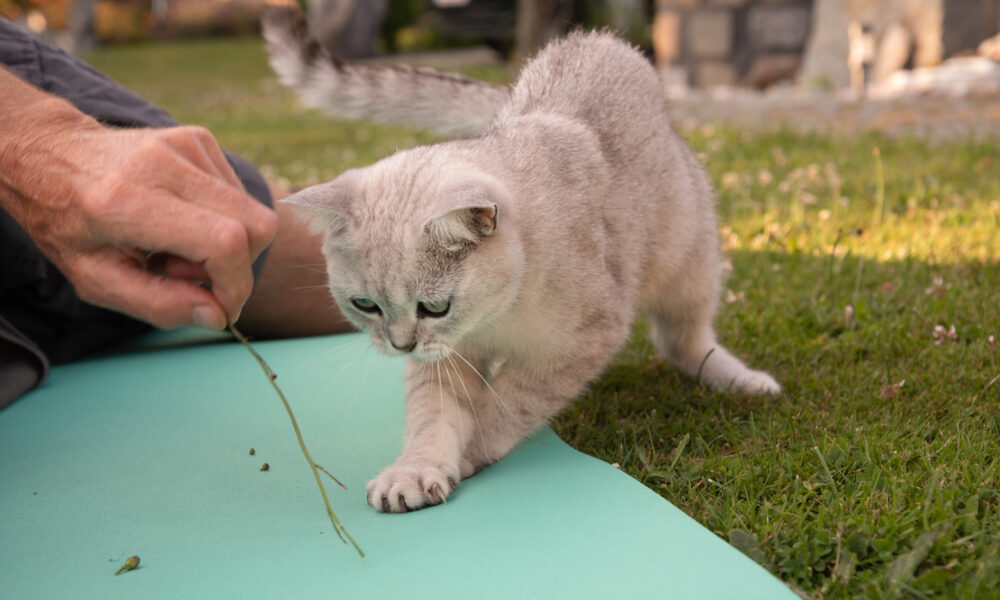Welcoming a Kitten Into Your Home: What Every New Cat Parent Should Know
Bringing home a baby cat is an exciting and heartwarming moment—but it’s also a big responsibility. Kittens are tiny, curious, and very delicate during their early weeks. They need much more than food and toys—they need warmth, structure, love, and the right kind of care to grow into strong, happy adult cats.
Whether you’re adopting from a shelter or fostering newborn kittens, this guide will walk you through how to care for baby cats, step by step.
Feeding Your Kitten at Every Stage
0–4 Weeks Old:
Newborn kittens need to be bottle-fed every 2–3 hours with kitten formula (never cow’s milk). Keep them warm during feedings and gently burp them afterward.
4–8 Weeks Old:
Begin offering soft, wet kitten food mixed with a little warm water or formula. Slowly decrease bottle feedings as they start eating solids on their own.
8+ Weeks:
Transition to high-quality dry or canned food made for kittens. Always keep fresh water available and avoid giving milk, as it can upset their stomach.
Keeping Kittens Warm & Safe
Young kittens can’t regulate their body temperature. To keep them warm:
-
Use a heating pad (on low), hot water bottle, or soft blanket
-
Avoid drafts and cold floors
-
Maintain a room temperature between 78°F and 86°F (26°C to 30°C) during their first weeks
Touch their ears and paws to check—cold kittens may refuse to eat and can get sick quickly.
Litter Training Your Kitten
By 3–4 weeks old, kittens can begin using the litter box. Here’s how to get started:
-
Use a shallow, easy-access litter tray
-
Choose non-clumping litter for safety
-
Place your kitten in the box after meals or naps to build routine
Keep the box clean daily to prevent odor and health issues.
Grooming & Hygiene Tips
Kittens need a little help staying clean, especially in their early weeks:
-
Use a warm, damp cotton ball to stimulate urination and defecation (under 4 weeks old)
-
Gently brush their fur to prevent mats and remove dirt
-
Avoid full baths unless necessary; use cat-safe wipes if needed
-
Never use human shampoo—it can irritate their sensitive skin
Socializing & Play: Raising a Friendly Cat
Socialization between 2 and 12 weeks is key. To help your kitten become confident:
-
Handle them gently and regularly
-
Introduce new sounds, people, and safe toys
-
Encourage play with feather wands, balls, and interactive games
Early social interaction helps prevent fear-based behavior later in life.
🩺 First Vet Visit & Health Care
Your kitten’s first vet appointment should be around 6–8 weeks old. The vet will:
-
Check for worms, fleas, or infections
-
Begin core vaccinations
-
Discuss deworming, microchipping, and spaying/neutering (usually at 4–6 months)
Stick to your kitten’s vaccine schedule to build strong immunity.
🏡 Creating a Kitten-Safe Home
Prepare your space to be kitten-friendly:
-
Remove choking hazards and secure loose wires
-
Block off unsafe areas (like behind heavy furniture or balconies)
-
Set up a cozy bed in a quiet, warm spot
Create a stable routine with feeding, play, and rest to help your kitten feel secure and loved.
🐾 Final Meow: Your Kitten’s Health Starts With You
Learning how to care for baby cats takes time, patience, and love. From proper feeding and warmth to socialization and vet care, every detail matters. The bond you build during these early weeks will shape your kitten’s trust, personality, and well-being for life.
With the right care and attention, your kitten will grow into a confident, healthy, and affectionate feline companion.
SEO Focus Keyword: how to care for baby cats
Additional Keywords: kitten care guide, new cat parent tips, baby cat feeding, first-time kitten owner, kitten training, vet care for kittens

